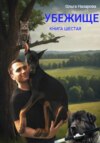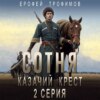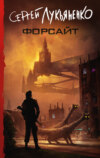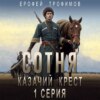Читать книгу: «Camp Venture: A Story of the Virginia Mountains», страница 12
CHAPTER XXVI
The Doctor's Talk
Tom went at once to his chopping, for being, as the Doctor said, "a healthy young animal," his sleep, his bath and his breakfast had completely cured him of his exhaustion.
At noon the boys made a hasty dinner, as was their custom when chopping, for the days were still short and they liked to utilize as many of the daylight hours as they could.
They had contracted to deliver a specified number of ties by the first of April or sooner, and they had already completed that part of their task; but their contract permitted them to send down as many more ties, doubling the number if they could; while, as for cordwood and bridge timbers, there was no limit set upon their deliveries. They were anxious to cut all they could and thus to make their winter's work as profitable as possible, and so they were not disposed to waste any part of a day so fine as this one was.
While they were chopping in the afternoon, just as a big tree on which the Doctor was at work began swaying to its fall, a large raccoon which had been hiding in the hollow of one of its upper limbs leaped to the ground. The Doctor, who had become almost as "quick on trigger" as Tom himself, seized a shotgun and fired. The animal fell instantly, riddled with turkey shot, and a minute later the Doctor held it up by the tail, saying:
"Here's a supper for us, boys! It'll be a change from bear beef, any how, and you are to have the skin, Tom."
The boys shouted for joy, for they were growing exceedingly weary of bear meat by this time, and there are few things more appetizing than a fat raccoon. So the Doctor carried his game to the house, where Ed proceeded at once to dress it for supper.
It was not until after supper that Tom related the story of his mountain adventure, and as he was an expert mimic, he succeeded in so presenting the mountaineer's part in the conversation as to cause a deal of laughter, in which Tom himself joined heartily, although his own memory of his difficult journey was anything but ludicrous.
The weather had grown exceedingly cold again and the logs were piled high on the fire. As the boys basked in the heat that was radiated into the room, some one said: "What a pity it is to waste all the heat that is going off up the chimney! It would run an engine."
"So it would," said the Doctor, "but that is what all the world is constantly doing. The wood that we have burned since supper would supply a French or Italian house with fire for a month at least."
"But how?" asked Jack. "Surely wood burns up as fast in France or Italy as it does here."
"Of course. But the French and Italians – especially the Italians – have very little wood, and they use it very sparingly. When they make an open fire it is made of sticks about eight or ten inches long, very small and usually consisting of round wood. They rarely have a split stick, because they never cut down a tree, or if they do they use every part of it that is bigger than your wrist for some kind of lumber useful in the arts."
"But if they don't cut down trees," asked Harry, "how do they get any wood at all?"
"They have very few trees," answered the Doctor, "and instead of cutting them down they trim off the branches from time to time and make fire wood of them, utilizing every particle, even down to the smallest twigs, which they cut into eight inch lengths and tie up in bundles for use in boiling their soup kettles. In some parts of Southern California," continued the Doctor, "they get their fire wood in the same way, though they do not have to bother with the little twigs, as tree growth is enormously rapid in that winter-less climate. At San Bernardino I have seen many houses standing in large grounds, with a row of cottonwood trees all around at the edge of the sidewalk. I have often seen these trees with every limb cut off close to the stem of the tree – not more than a few feet from it at farthest. In that way the owner gets his fire wood – he doesn't need much of it – for three years to come. The trees thus pollarded quickly put out a host of new branches and as these grow rapidly in a climate that has no winter, they are ready to be cut again three years later."
"But if trees grow so rapidly there," asked Tom, "how is it that there are no woodlands there?"
"Because it is a rainless region. It is a desert simply for a lack of water, and when men build reservoirs up in the mountains and bring water down in irrigating ditches that desert literally blossoms like a rose. The soil is as rich as any down in our valleys and creek low grounds here, and as there is no winter every living thing grows all the year round. At Riverside, for example, you find a luxuriance of growth unmatched anywhere in these mountains. Eucalyptus trees border all the roads, towering to great heights. Back of them are orange and lemon groves and still further back vast vineyards in which the stumps of the vines – for they are cut back to a stump every year, to make them bear – are from four to six inches in diameter, so that they need no stakes to support them as vines do here. Often also there are rows of luxuriant pepper trees flourishing in the middle of the road. In short, you can nowhere on earth except in swamps, find a more luxuriant riot of vegetation than at Riverside. Yet until men made reservoirs and ditches and brought water down there from the mountains the ground that now supports all this splendid growth was as bare as the palm of your hand, and when you drive out of Riverside in any direction, you come instantly to an absolute desert, without even a weed growing on it, the moment you pass beyond the line of irrigating ditches."
"Is there much land of that sort?" asked Jack, "land that is fertile I mean in itself, but is desert because of a lack of water?"
"Millions of acres of it, though much of it has already been redeemed by irrigation. General Sherman once said that when he first crossed the San Joaquin and Sacramento valleys he could have bought the whole of them for twenty-five cents, and in fact would not have given a penny for both. Yet to-day those valleys are the most productive wheat fields in the world, not even excepting Minnesota and the Dakotas. In a single year they have been known to furnish fifty million bushels of wheat for export, after feeding the Pacific coast fat."
"But is there always water to be had for irrigating purposes?" asked Jack, who was becoming intensely interested.
"Practically, yes," the Doctor answered. "That is a country of vast mountain ranges, all the way from the Rockies to the sea, with great valleys and plains lying between. It is almost always raining or snowing in the mountains, and indeed the tops of the higher ranges are nearly always snow clad, even in summer. I remember once crossing the Utah desert, which lies between the Rocky mountains proper and the Wassach range. There is no sand or gravel there, but only a singularly rich soil, barren for lack of rain alone. During the entire trip across we were never for one minute out of sight of either a snow storm or a rain storm some where in the mountains that surround the desert. Obviously enough water falls in the mountains to make of that desert the very garden spot of America when ever men take measures to store the water and bring it down to the desert lands below. The Mormons, who have made a rich farming region in this way out of the desert west of the Wassach range, have already begun doing this on the eastern side in a limited way. At Pleasant Valley they have brought water down from the mountains and made gardens that are a delight to the eye and mind. They grow there the finest black Hamburg grapes in the world. But neither that nor any other of the great deserts can be redeemed entirely until either the government or some great company able to spend money by scores of millions shall undertake the work in a systematic way, selling water rights with every farm. Of course no farmer can provide a water supply for himself from mountains twenty miles away, but if a great company or the government would catch and store the water and sell the right to use it to each farmer, as is done in parts of Southern California, the major part of what used to be called 'the great American desert' would soon become the great American garden. Of course the alkali deserts of Nevada and worse still, the arid, sandy, gravelly, soilless plains of Arizona and New Mexico can never be reclaimed in that way. But the regions that are barren only because they get no rain, can be redeemed and very certainly will be when this country becomes so crowded with population that every acre of arable land will be needed."
"But isn't this country pretty badly crowded already?" asked Tom.
"Crowded? No," answered the Doctor. "It is very sparsely settled instead. This country has a population of only twenty people to the square mile, while Belgium has 529 and England 540 to the square mile. Long before we fill up to any such extent as that all our arid lands that are fit for cultivation will be watered from the mountains, and regions where now even a cactus cannot grow will produce wheat, corn, cattle and fruits in lavish abundance. But I say, boys, we've talked till after eleven o'clock. This will never do; let's get to bed."
CHAPTER XXVII
Some Features of the Situation
Every morning Tom "prowled," as he put it, all around the camp, "just to see how things are," he said.
Two mornings after the talk reported in the last chapter Tom found, out under the bluff, a big bag of rye meal or rather of rye coarsely ground for whiskey making purposes. He dragged it over the hard snow to camp and opened it. In its mouth he found a piece of paper and written upon it in rude letters was the following:

Tom called all the boys into conference before deciding what to do with this present. He said to them:
"Bill's ideas of morality are somewhat confused. In his eagerness to render me some return for my act in letting him go back to his 'little gal' on parole, he wanted to give me the meal I brought to camp the other morning. It never occurred to him that as the meal didn't belong to him, he had no right to give it to me, and all I could say to him was utterly futile as an effort to make him take a moral or rational view of the case. Now I am seriously afraid our friend Bill stole this rye meal. That would perfectly fit in with his ideas of morality, gratitude and all that sort of thing. Still we don't know that he did steal it. After all I did pay him a double price for the meal we got, and possibly he has applied part of the surplus payment to the purchase of this additional supply from his criminal friends the distillers. After all I have no means of knowing that he ever paid the original owners of that first meal any part of the money that I gave him for it. He couldn't see at the time why he shouldn't steal it for me, and so he may have stolen this."
"Well," said the Doctor, "you honestly paid him for the former supply of meal, insisting that you wouldn't take it at all unless you paid for it. He understands that perfectly. He has a sufficient sense of honesty now to bring you an additional bag on the ground that you paid an excessive price for the former supply and that he wants to make it 'skwar.' I don't see how we can go behind that, especially as we cannot possibly return the meal either to him or to its owners if he stole it. Our only option is to eat the stuff or take it back out there to the foot of the bluff and leave it there to rot."
After some further discussion it was decided to eat the rye meal as practically the only thing that could be done with it.
One week later another bag of meal – corn meal this time – was found out under the bluff, but with it came no explanation of any kind. Thus the bread supply in Camp Venture was made secure for a time at least, and for a meat supply the guns did all that was necessary – especially Tom's gun, for Tom spent many of his hours wandering over the mountains in search of game, and Tom rarely sought game in vain.
It was coming on to be March now, and the weather had greatly moderated. The snow was melting off the mountains and the spring rains were falling freely.
"Our meal will run out before long," said the Doctor one night, "but the time is near at hand when we can send a boy down the mountain to bring up a pack mule with some supplies."
"Indeed you can't," said Tom.
"But why not?" asked the Doctor.
"Simply because there are some mountain torrents in the way, that no human being could pass, even if he had one of your big steamships to help him in the crossing."
"But I saw no mountain torrents on our way up," said the Doctor.
"Certainly not," answered Tom, "for they weren't mountain torrents then, but the dry beds of streams. But now it is different. It would be as impossible now for us to 'git down out'n the mountings' as to fly to the moon – unless we went down over the cliffs there, following the chute. And of course we couldn't bring a pack mule up that way. No, we've got to stick it out and live on what we can get till our work is done, and then – as the spring is coming on and the way is blocked by the torrents of which I spoke, – we've got to make our way over the cliffs down there by the chute, for we simply cannot get down the mountain by the way we came."
"How do you know this, Tom?" asked Harry.
"Why, I've tried it. You see any road down the mountain that furnishes an easy way is sure to be crossed by creeks that are dry in the summer and fall, but raging whirlpools when spring melts the snow and sends millions of gallons of water every minute down the steep inclines. I count myself a strong swimmer. But I could no more swim across one of those sluiceways than I could climb up a sunbeam to the rainbow. I tell you we can get nothing from down below now, and I tell you that we can't ourselves go down the mountain by the way by which we came up, for two or three months to come."
"What are we to do, then, Tom?" asked the Doctor.
"Well, first, we're to feed ourselves as best we can till we've finished our work; and then we're to go down the mountain on its steep side along the chute. That will involve a great deal of toil and some danger. We shall have to let ourselves down over cliffs by hanging on to bushes, with the certainty that if the bushes give way we shall be dashed to pieces on the rocks below. But that's the only way we can get down the mountain unless we are willing to wait for summer."
"Well, the question is not an immediately pressing one," said Jack. "We've got a lot of work ahead of us yet, and we've got plenty of game and plenty of bread stuffs in camp."
"Plenty of game, yes," said the Doctor. "But as for bread stuffs, I don't think we have more than a peck or so left."
The next morning Tom, in his "prowlings" found two big bags of corn and rye meal lying there under the bluff. "It's a case of bread cast upon the waters returning to us after many days," said Tom.
CHAPTER XXVIII
The Capture of Camp Venture
Tom had miscalculated the weather, misled as every body is apt to be by the calendar. As he had not at all anticipated, the softness of early March presently gave way to a severe cold wave, which not only put an end to the spring rains, but stopped the melting of the snow upon the mountains and dried up those torrents that had alone blocked the way down the mountain since the great snowdrift barriers had disappeared.
"I take it all back, fellows," he said, one night. "I didn't look for such weather as this in March. But any how any fellow in the party can go down the mountain now. Whether he ever gets back again or not is a question not easily determined. A very little thaw would make that impossible."
"My view," said the Doctor, "is that we'd better not risk it. This cold weather simply cannot last long at this season of the year, and we can't spare any boy from our company. We have two bags of meal in camp – enough to last us three or four weeks – and of course Tom's gun will provide us with meat. It seems to me it would be exceedingly unwise to send any one of our number down the mountain and not only unwise but wholly unnecessary. What do you think, boys?"
Every boy in the party shared the Doctor's opinion, and so it was decided not to send one of the company down the mountain at this time, although the weather conditions were especially favorable for the moment at least. They proved also to be favorable to something else.
Just before daylight the next morning Jim, who was on guard, quitted his post and came hurriedly into the house. He waked his comrades, saying:
"Get up quickly, boys, and get your guns. The moonshiners have completely surrounded Camp Venture."
Ten seconds later all the boys were out on the platform, fully armed. It was still too dark to see men even at a short distance, but low voices could be heard in every direction round the camp. The boys themselves consulted only in whispers.
Jack took command, of course.
"Don't shoot, boys, even if they shoot at us," he said. "They can do little damage that way, as we have this wooden barrier to stop their bullets. What we've got to look out for is a rush, and we must reserve our fire to repel that with."
"Hadn't some of us better go to the rear of the house?" asked Harry. "They may rush us from that direction."
"No," answered Jack. "There's no opening to the house on that side; and we have no barrier there to fight behind. If they attack from that direction we must fight from inside the house. Suppose you go in Harry and knock out three or four pieces of chinking about breast high, so as to give us a port hole to fire through. Keep a keen look out through the crack, and if they advance from that direction call us at once. But don't any of you shoot, front or rear, till they make a rush."
As he spoke, two or three shots came from the enemy in front, the bullets burying themselves harmlessly in the wooden barrier well below the feet of the boys, as they stood on the platform, for the barrier could not be seen in the darkness, and the men shooting aimed at about where they thought a man's breast would be if he stood upon the ground.
The temptation to return the fire was almost irresistible, particularly to Tom, who had his magazine rifle in hand. But Jack resolutely insisted upon reserving fire in order to be ready to repel a charge whenever it should come.
The light was now growing stronger and here and there it was possible to make out one of the enemy, crouching behind a rock or in some little depression of the ground. Enough of them could be seen by this time to show clearly that they outnumbered the garrison of Camp Venture more than four or five to one. Somebody remarked upon this fact, whereupon Jack replied, still speaking in a whisper:
"That's true! But if they make the rush that I'm expecting they won't outnumber us much by the time they get here."
As the light grew still stronger, Tom set his gun down, ejaculating "Well, well, well."
"What is it, Tom?" asked the Doctor.
"Why, those aren't moonshiners, but revenue officers and soldiers!"
A little further scrutiny convinced the boys that Tom's keen eyes had seen aright. The bullets were still pattering now and then against the wooden parapet, but evidently the enemy was not yet ready to make the charge which alone could give him possession of the fortress.
Tom felt in his pocket, drew out a handkerchief and tied it to the end of his gun. Then he descended the little ladder to the ground.
"What are you going to do Tom?" asked Jack.
"Why, I'm going out under a flag of truce to explain to those fellows what a stupid blunder they've made. They've mistaken Camp Venture for an illicit distillery, as if anybody would set up a still in such an open place as this."
"But wait, Tom! It is still so dark that they may not see your flag of truce. They may all fire at you at once. Wait till broad daylight comes."
"Yes," answered Tom, "and in the meantime those fellows may make their charge, – they're forming for it now, – and in that case we'll have to shoot half of them. No, I'm going out with my flag of truce now, and I'll simply have to take the chances of getting shot."
With that he passed around the end of the barrier and sallied forth, holding his flag of truce above him and calling as he went "Truce! Truce! A flag of truce! I bear a flag of truce! Don't shoot!"
Nevertheless several bullets from improved army rifles passed uncomfortably close to him – one of them cutting a hole through the top of one of his boots – before the officer in command of the assailing party could be made to understand the nature of Tom's mission. At last he understood it and calling to Tom to halt where he stood, which was about midway between the two forces – the lieutenant who commanded the troops, hoisted another white handkerchief and went out to meet the boy.
To him Tom explained the nature and purpose of Camp Venture and invited him and his party to come in and inspect the place for themselves.
The lieutenant looked at him incredulously at first, and then laughed.
"That's a good one on us!" he said presently, "if what you say is true."
"I never tell lies!" said Tom, in resentment.
"I don't believe you do," said the officer. "You don't look it, anyhow. But of course we mustn't take any risk of being caught in a trap. So I'll send a squad of my men with you to inspect. Here, Sergeant Malby; take a detail of four men and go with this young man to the camp yonder. In the meantime, my boy, I'll detain that magazine rifle of yours, if you please, till I satisfy myself."
Tom handed over his gun and led the sergeant and his squad into Camp Venture. As daylight had now fully come, the soldiers had little trouble in satisfying themselves that there was no still there, and that the company consisted only of five boys and the Doctor. The sergeant so reported to the lieutenant and that officer was disposed to be satisfied. Not so the three revenue agents, however.
"It's a fishy story these fellows tell," said the chief of them, "and I for one don't intend to be drawn into a trap. There may be no still and only a small company of boys in that cabin, but who knows how many stills there may be hidden around here, or how many moonshiners may be hiding about us, ready to massacre us?"
"All right," said the lieutenant, in some disgust at the revenue officer's timidity. "I'll settle all that. Stay here, men, and wait for orders."
With that he strode off alone to the cabin and entered it. He there explained the situation to the boys and said:
"I'm afraid I shall have to ask you fellows to go out there and stack your arms, considering yourselves under arrest till our timid friends of revenue officers can make a tour of inspection all about your camp under the armed escort of my men. They were so sure that they had surprised a still here that they can't get over the notion. So we must humor them."
The boys readily consented to the plan. They marched out to a point designated by the lieutenant and there stacked their arms, over which the lieutenant summoned two of his men to stand guard. Then he bade the revenue officers come on, and under escort of his file of soldiers they minutely scrutinized the entire camp. The felled trees not yet chopped into shape for sending down the mountain; the large quantity of ties and cordwood that were piled near the chute; the multitude of stumps from which timber had been recently cut; the great piles of brush left over from the chopping; and finally the chute itself, now nearly worn out with use – all these attested the character of the camp and indicated an industry on the part of its occupants, such as no company of moonshiners ever displayed.
At last the Lieutenant said to the chief revenue officer, with some show of impatience:
"Aren't you satisfied, yet? Why don't you look under these boys' finger nails? How do you know they haven't some stills secreted there?"
"Yes, I'm satisfied with all but one thing," answered the agent of the excise.
"What's that?" asked Jack. "Whatever it is, I'll try to satisfy you concerning it."
"Why, I don't understand, if you aren't engaged in any crooked business, what you built that fortification for. If you didn't feel the need of resisting the government agents, what need had you for a barrier like that to shoot behind?"
"We built that to protect ourselves against moonshiners," answered Jack.
"But why should moonshiners disturb you?" asked the still incredulous revenue agent.
"Because they believed when we first came up here that we were spies of the internal revenue and most of them still believe it. They began by ordering us to quit the mountains and when we wouldn't they sent men to shoot at us. One of our party is still suffering from a bullet wound received at their hands. When we found that we must defend ourselves we erected that barrier to help us. Now that you have come up here we'll need it you may be sure."
"Why?" asked the revenue officer.
"Because they'll never believe now that we didn't send for you and bring you here. They'll make ceaseless war on us now."
Meanwhile the Lieutenant was examining the fortification. Presently he turned to Jack and said:
"Will you allow me to suggest an improvement in your defensive work?"
"Certainly," answered Jack. "We shall be very glad."
"Well the top of your parapet is level. Whenever you shoot over it you must expose your head, neck and shoulders above it. Now if you raise it by ten or twelve inches and then cut embrasures or notches in the top of it to shoot through you can put up a fight with far less exposure of your persons."
The suggestion was so obviously a good one that Jack determined on the instant to adopt it.
"I'll do that, Lieutenant, as soon as you release us from arrest and let us have our guns again."
"Oh, I forgot that," answered the Lieutenant. "Here sentinel," to the man who had been posted outside, "tell Sergeant Malby to send those guns back to the house, and to withdraw you from duty here. Young men, you are released from arrest."
Then turning to the chief revenue officer, for whose timid lack of sagacity he had obviously the profoundest contempt, he asked:
"What's your program now?"
"Well I'm going to clear this whole mountain of stills."
"How long do you reckon it will take?" asked the Lieutenant.
"Well a week or two weeks perhaps."
"And what provisions have you made for your commissariat for such a length of time?"
"What do you mean?"
"Why, I have forty men here and I'm under your orders, to do whatever you say, but every one of my forty men has a mouth to feed, and under my orders I brought only three days' rations in the haversacks. If you intend to keep us up here for a week or two, ought you not to have made some provision for a food supply?"
"Why didn't you look after that?" asked the revenue officer.
"Because it was none of my business. I'm a soldier. I obey orders. My orders were to take three days' cooked rations and march my men up here to support the revenue officers in whatever they undertook."
"That's always the way," said the revenue man. "The troops always fail us at the critical moment. That's why our efforts to break up moonshining always come to nothing."
"Pardon me, sir," answered the officer rising in his wrath. "I'll trouble you to take that back. The troops under my command have not failed you and they will not. We have nothing to do with collecting the revenue. That's your business. Ours is merely to fight anybody that resists you. That duty we are ready to do just so long as you may desire. We'll force a way for you to any part of these mountains that you may desire to visit and we'll keep it up for a year if you wish. But in the meantime somebody must provide my men with food!"
"If that's the way you look at the matter," said the revenue officer, "we might as well go down the mountain at once."
"It isn't a question of how I look at the matter," answered the lieutenant, impatiently. "I tell you I'm ready and my men are ready for any service you may assign to us. But I tell you also that we must have something to eat, and it is your duty to arrange it."
"But how can I?"
"Would it be impertinent in me to suggest," asked the lieutenant, "that you ought to have thought of that before you began your raid? If you had said to the commandant that your expedition was likely to occupy a week or two he would have ordered the commissary to furnish me with two or three weeks' provisions and the quarter-master to supply enough stout pack mules to carry them. As it was, you represented this as a two days' trip and he ordered me to carry three days' rations in the haversacks."
"Well, we'd better retreat at once," answered the revenue officer.
"But why? It isn't even yet too late to repair your blunder. Why can't you send one of your men down the mountain at once to bring up a train of pack mules loaded with provisions? He can be back here in less than two days if he hurries."
"But I don't know – " began the man.
"I don't care what you know or don't know," answered the young West Pointer. "I simply tell you that as soon as my men run out of rations I'll march them down the hill again. It is my duty to see that they don't starve."
"But if I send a man down the mountain," answered the revenue agent, "some moonshiner might shoot him on the way."
"Very probably," answered the lieutenant. "That's a risk that men engaged in the revenue service are bound to take, I suppose. But if you request it, I will send a squad of four soldiers to guard your man on the way down and to protect the pack train on its way back."
Manifestly the revenue officer was anxious to "git down out'n the mountings," but he feared the report which in that case the angry and disgusted lieutenant would probably make, even more than he feared the moonshiners. Still he hesitated to detail one of his men to go down the mountain under escort of a corporal and three men.
This matter being still unsettled, the lieutenant said:
























